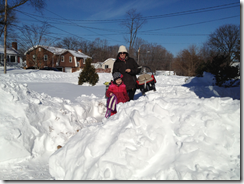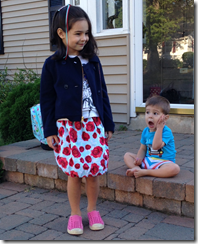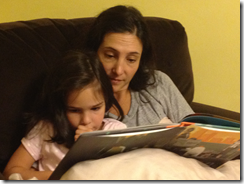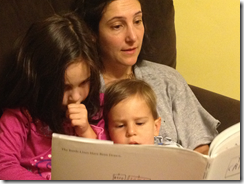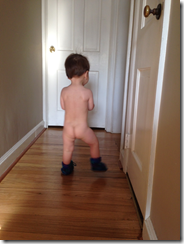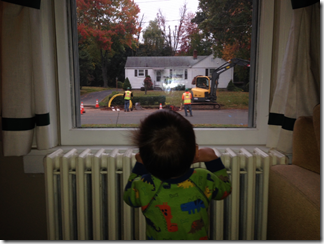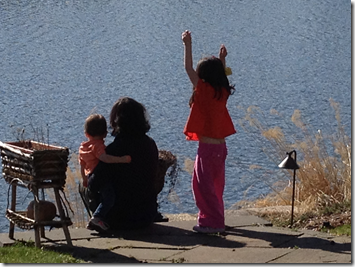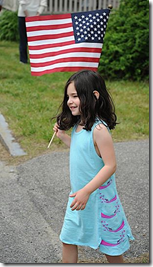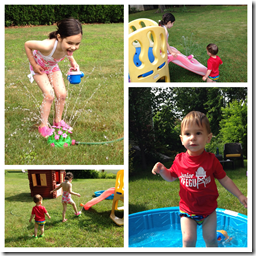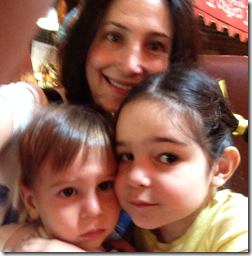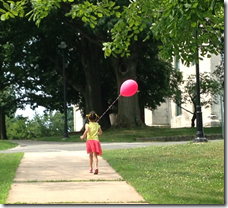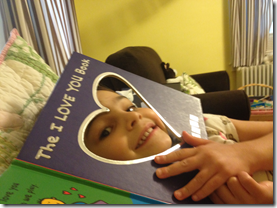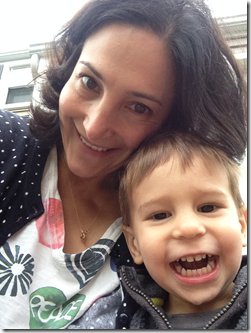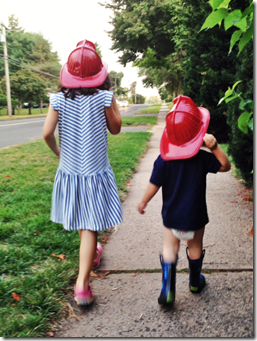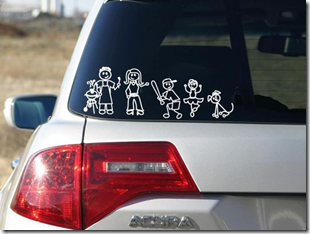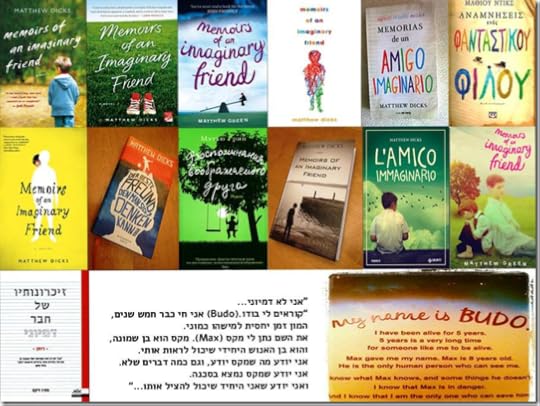Matthew Dicks's Blog, page 359
January 27, 2015
This guy is too damn young to be teaching.
A student from my very first class, way back in 1999, sent me this photo. It’s actually a screen grab from a video that they were watching.
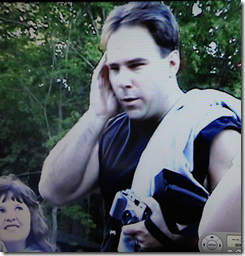
It’s me, of course. I was probably 29 or 30 at the time. My first and only thought was this:
How could anyone hire someone so young to teach children?
What the hell was my principal thinking?
January 26, 2015
Two important things to remember as the Blizzard of 2015 approaches
As my home state of Connecticut prepares for the oncoming blizzard, there are a few things to keep in mind:
______________________
The blizzard will hit on Monday night and continue through Tuesday. But the roads will be cleared and stores will be open by Wednesday, which means we are talking about about 36 hours trapped indoors.
And you’ll probably spend about 16 of those hours sleeping.
This is not a big deal. Even if you lose power, which will suck, it’s not a big deal.
______________________
I’d also like to remind my fellow New Englanders that blizzards are not exactly uncommon in our neck of the woods. In the last five years, New England – and specifically Connecticut – has been hit by three major blizzards, more than two dozen snowstorms of a foot or more, and an October nor’easter which did more damage than all of the blizzards combined.
Blizzard of 2013: 24-40 inches
Blizzard of 2011: 20-30 inches
Halloween nor-easter of 2011: 18 inches of snow and a majority of residents without power for more than a week
Blizzard of 2010: 12-24 inches of snow
We’ve seen this before. We’ll see it again. We live in New England. It shouldn’t be a surprise.
Also, you probably had enough bread and milk to get you through Wednesday.
30 lessons learned from six years of parenting
My daughter celebrated her sixth birthday on Sunday. When she turned two years-old, I posted a list of lessons learned from two years of parenting.
I updated that list when she turned four.
In truth, I raised a step-daughter for ten years as well, so I’ve been a parent a lot longer than just six years, but for the purposes of these posts, I have only listed lessons learned since having children of my own.
Here is the latest update to the list.
_________________________
1. The parent who assumes the tougher position in regards to expectations and discipline is almost always correct.
2. Writing to your child on a daily basis helps you better appreciate the moments with your little one and prevents you from wondering how and why times flies by so quickly.
3. Training your child to fall sleep on her own and sleep through the night takes about two-four weeks if done with tenacity, an iron will, and an absolute adherence to the advice of experts. There are exceptions to this, of course, but they are few and far between. Parents must also possess the grudging acceptance that thunderstorms, nightmares, and illness will upset the apple cart from time to time.
4. You cannot take too many photographs of your children.
5. Failure to follow through with warnings and consequences even once is the death knell of effective parenting. Everything begins with you sticking to your word every time. Nothing is more important when it comes to discipline.
6. Libraries are the greatest child-friendly, zero-cost entertainment options on the planet.
7. The right iPhone app can transform an unfortunate dining experience into a delightful one. There is no reason to suffer in a restaurant. If your child is acting like a jerk, fork over the technology and enjoy the rest of the meal. Make him or her suffer later.
8. Almost all of your child’s annoying behaviors have a short shelf life. They will invariably be replaced by a different annoying behavior, but don’t become consumed with the idea that any one behavior will last forever.
9. Reading to your child every night is one of the best things you can do. Failure to do so is inexcusable.
10. Car seats suck. They may be the worst part of parenting.
11. Parents who are blessed with children who eat almost anything and claim that they are responsible for this behavior should be immediately ostracized by friends and family. Possibly forever.
12. Babysitters who take good care of your children and keep the house clean should be treasured like gold.
13. It’s important to remember that there was a time in human history, not that long ago, when foods like bananas, avocados, and fish were unavailable to vast areas of the world on a daily basis, yet children still grew up healthy and strong. Variety is lovely but not as important as we sometimes think. Don’t sweat it.
14. Pick up your children as often as possible, particularly when they become too heavy to do so comfortably. The day will come when you can no longer pick them up, and you will regret all the times they asked and you said no.
15. Battles over a child’s choice of clothing are some of the dumbest. As long as your child is adhering to basic codes of decency, stay out of the wardrobe wars.
16. Changing a diaper is not a big deal and is never something worthy of whines or complaints.
17. Experienced parents always know which toys are best.
18. If your child refuses to wear a hat, coat, or gloves, allow them to experience the cold. Natural consequences oftentimes teach the most valuable lessons.
19. Unsolicited advice from experienced parents should always be received with appreciation. It should not be viewed as a criticism or indictment of your own parenting skills and can be easily ignored if need be.
20. Consignment shops are some of the best places to find children’s clothing and toys unless you are a pretentious snob.
21. The majority of unhappy parents in the world possessed unrealistic or misguided expectations about motherhood or fatherhood before their child was ever born.
22. Don’t become emotionally involved in your child’s poor behavioral choices. He or she owns those choices. Establish expectations, deliver consequences, and offer guidance and love. That is all. You almost never have anything to do with a temper tantrum or your child’s bad decision.
23. Parents seeking the most fashionable or trendy stroller, diaper bag, and similar accouterments are often saddled with the least practical option.
24. Little boys and little girls are entirely different animals. They have almost nothing in common, and it is a miracle that they might one day marry each other.
25. Parenting is not nearly as difficult as people want you to believe.
26. Telling parents that taking care of your child has been an easy and joyous experience will usually annoy them.
27. A seemingly great majority of the people in the world who are raising children are not happy unless they have attempted to demoralize you with their assurances that parenting will not be easy.
28. Experienced parents who are positive, optimistic, and encouraging to the parents of newborns are difficult to come by and should be treasured when found.
29. The ratio of happy times to difficult times in the first two years of your child’s life is about a billion to one.
30. Parents have a tragic tendency to forget the billion and accentuate the one.
Storytelling on The Gist
If you’re not already listening to Slate’s The Gist, the daily podcast hosted by Mike Pesca, here’s another reason to do so:
I’ll be appearing on The Gist as a part of a new project that seeks to teach the art of storytelling to listeners. Whether you are telling stories at a dinner party or the water cooler or on the stage, our goal is to explore how stories are found and crafted and perhaps help people become more engaging and interesting conversationalists.
In addition to all that, we are accepting story pitches from listeners, and one lucky person will have the opportunity to work with me to perfect their story and ultimately perform it on stage.
You can listen to the first episode here, or by subscribing to The Gist in iTunes, or by listening through Soundcloud here.
My segment begins at the 9:40 mark.
January 25, 2015
Slate might actually be stealing my ideas. Not really, but you have to admit that it’s getting a little suspicious.
About two weeks ago, I wrote a tongue-in-cheek post accusing Slate of stealing my ideas. On the same day, Slate published pieces defending skipping and arguing that climate change skeptics can no longer use the word skeptic when describing themselves because it’s simply not true.
I had previously published blog posts that were eerily similar.
But like I said, my claim was tongue-in-cheek. I didn’t really believe that there was an editor at Slate scouring my blog for interesting topics for his or her writers. I still don’t.
But I couldn’t help but notice that David Shiffman’s piece “I’m Not a Scientist” Is a Dangerous Cop-Out, which argues that the Republicans can no longer claim ignorance in order to avoid taking a position on climate change, is eerily similar to my blog post from a month earlier “I’m not a scientist” is a perfectly acceptable response to climate change questions, as long as you’re willing to acknowledge everything else that you are not.
Just look at the similarity in argument and even word choice between Shiffman and myself.
Shiffman writes:
When politicians say “I’m not a scientist,” it is an exasperating evasion. It’s a cowardly way to avoid answering basic and important policy questions. This response raises lots of other important questions about their decision-making processes. Do they have opinions on how to best maintain our nation’s highways, bridges, and tunnels—or do they not because they’re not civil engineers? Do they refuse to talk about agriculture policy on the grounds that they’re not farmers? How do they think we should be addressing the threat of ISIS? They wouldn’t know, of course; they’re not military generals.
More than a month earlier, I wrote:
Despite the sudden and overwhelming use of this sound byte [I’m not a scientist] as a means of doing nothing about climate change, I’m willing to accept these Republican’s admission of ignorance as long as they are willing to also admit that they are also not economists, military strategists, healthcare policy professionals, gynecologists, teachers, and Biblical scholars.
If these white men (because they are almost all white men) are unwilling to accept the findings of the vast majority of scientists who assert that climate change is both real and man made because they are not scientists themselves, then they must also renounce themselves from decisions involving the economy, monetary policy, the military, the Affordable Care Act, Medicare, Medicaid, abortion, contraception, education, and any policy enacted in accordance or alignment with Biblical principles.
Eerily similar. Right?
Despite the similarities, I don’t think that Slate editors are stealing my ideas. I have an enormous respect for the work that Slate does, and I recently began playing a small role in Slate’s podcasting empire. I am a tiny fish in an enormous pool of ideas. People have similar ideas all the time.
I guess I’m just quicker to the idea than these particular writers at Slate.
Still, it’s oddly coincidental. Right?
January 24, 2015
The mindset of the person who affixes those stick figure family decals to the rear window of their car mystifies me.
I like to imagine the decision making process that goes on in someone’s mind when they make a choice that I think is fairly stupid.
Take those stick figure decals that you see in the rear windows of cars the serve as a representation of a family’s size and composition.
Stupid. Right?
Of course they are.
Yet a disturbing number of people affix these things to their car windows with alarming frequency. This means that there was a moment in a person’s life when he or she decided to purchase these decals and thought that this purchase was a good idea.
What could they have been thinking in that moment?
“I want people parked beside me at the super market to know exactly how many people are in my family, just in case they think all this food is for me.”
“Janet’s minivan has decals like these, and I think Janet is just the coolest mother ever. I want to be just like Janet. I want my kids to love me as much Janet’s kids love her. Why don’t my kids love me like Janet’s kids love her? Why doesn’t my husband look at me the same way he did when we were first married? Was he staring at Janet’s ass at the PTO bake sale last week? How much do these decals cost?”
“I’m a baby making machine, and I want the world (or at least the people stuck behind me at traffic lights) to know it, goddamn it.”
“Joe and I only had two children, because we are responsible citizens of this planet who only seek to replace ourselves and limit our carbon footprint. I want my vehicle to reflect this philosophy in the most obnoxious way possible.”
“I’m so proud of my family. The kids. The cat. Even my stupid husband. These stick figure decals are the perfect way to show how proud I am.”
“Look! A kind of family checklist that I can stick on my car, so I’ll never forget any of my kids at the amusement park or the laundromat again.”
Love my readers
A reader from overseas sent me this collage my the covers of Memoirs of an Imaginary Friend, including two that I had never seen before.
January 23, 2015
My aunts and uncles were once young and strong and infinite. This is how I try to remember them even when the shadows of my ongoing existential crisis creep in.
I’ve been thinking about my grandparents a lot lately. Specifically, I’ve been thinking about the families that they raised and what life must’ve been like back then. In the not-so-old days.
I have an interesting family dynamic:
My mother married my father.
My mother’s brother married my father’s sister.
Two families more closely intertwined by marriage than most. And large families, too.
My father was one of seven children.
My mother was one of six.
Until my mother and father divorced when I was about eight years-old, Dad lived in my childhood home, next door to his father, my grandfather. Dad’s grandfather (my great grandfather) and his uncle (my great uncle) lived there as well. For much of his life, his brother (my Uncle Neil) lived there, too.
Two houses down from our home lived my father’s brother, Harold, and his wife, Cathy. Half a mile down the road lived my father’s youngest sister, Sheila, and her husband, Tim. Across the street from our house and across the street from my grandfather’s house were the homes of my uncle’s wife’s family.
Our street was a bit of a family compound.
The rest of the family, on both my mother’s and my father’s side, lived nearby. Both sets of grandparents lived in my hometown, as did most of the uncles and aunts. Until my mother’s sister, my Aunt Paulette, moved to South Carolina when I was young, every aunt and uncle with the exception of one lived within fifteen minutes of my home.
Today, the families are much smaller.
All of my grandparents are dead.
My mother and her older sister are dead.
Two of my father’s brothers and one of his sisters are dead.
Thirteen children amongst the two families now reduced to eight.
But I like to think back to a time, prior to 1978, when things were different. My father’s mother had died a few years earlier, but otherwise, the family was complete. It was a time when all thirteen of these children were alive and well. Some were married and some were single, but none had been divorced yet. The families were intact. For a tiny sliver of time, things were as they should be. There were no shadows at the family picnics.
My Aunt Carol, my mother’s oldest sister, passed away first, following her husband, my Uncle Norman, who died a little less than decade earlier.
My parents divorced. My father left the house and farm that stood in the shadow of his childhood home. He went from living next door to his father to living alone in an apartment behind a liquor store.
Then my Aunt Sheila died tragically in a doctor’s office while receiving an allergy shot. She was still in her twenties and the mother of three.
My Uncle Neil died years later, followed by my Uncle Harold just recently. More divorces along the way. More families chopped in half. Reconstituted. Chopped again.
But I like to think about my grandparents and pre-1978: a time when all of their children were alive and well. When their marriages were intact and futures were bright. When death had not yet begun to cast its shadow across the landscape of the family and whittle it down, piece by piece.
It must have been a lovely time for my grandparents. A lovely moment, really. A few years in the sun before things began to crack.
It must be hard to watch a family fracture. Separate. Shrink.
A not-so-long time ago, thirteen children who would one day become my aunts and uncles lived in the tiny town of Blackstone, MA. They ran and played and laughed and grew. They found work. They fell in love. The sun was warm on their backs and the grass was soft underfoot.
I like to think about them like this. Young and strong and infinite.
Now there are shadows where loved ones once stood. Aging bodies and broken hearts and lost love. Someday thirteen will become zero, and those once glorious and indestructible children will be no more.
One hundred years from now, they will be all but forgotten. Names occasionally uttered in discussions of family trees. Mentioned in soon-to-be-forgotten family stories. Etched into tombstones no longer visited.
I would – if I could – reach back into time and tell those thirteen children, spread amongst two families, to hold onto their youth with every ounce of strength that they have. Cherish it. Grab onto one another and hold tight.
And I would tell them to run. Run fast and hard and with reckless abandon through fields and streets and wood because some day running will be a thing of the past. I would urge them to run from those shadows that are looming closer each day and remember their time in the sun, because it is all too fleeting, and someday, thirteen will become none.
January 22, 2015
This is how I survive meetings.
When I am forced to suffer through an agonizing meeting or a pedantic training session (of which almost all are), I stare at photographs like this to prevent my soul from being thoroughly crushed.
Photos like this are like a tiny light in a universe of infinite black. They serve as a reminder that the person speaking will eventually stop, the PowerPoint will thankfully run out of slides, and the hands of the clock will signal my freedom.
I don’t know how I survived meetings before I had children.
January 21, 2015
My friends are incredibly odd. Complete outliers. I couldn’t be more happy.
It occurs to me that all of my closest friends are exceptionally non-materialistic.
Not a single designer anything in the bunch. Not one name brand plastered on anything that they wear or carry. Nondescript clothing absent of labels or markers of any kind.
And with the exception of a 1960’s Corvette – which my friend spent years restoring on his own – even their cars are modest. Even though all are gainfully employed and some are doing quite well, most of them buy used cars. Boring used cars.
In addition, four of my closest male friends are not on Facebook or any other form of social media. They also are four of the only people I know who don’t have a presence on some kind of social media platform.
Running into someone without a social media presence today is an oddity. It normally signals a troubled past or a stalker of some kind.
These four guys simply have no inclination to engage with people over a social media platform. They have no time for it. No desire to share photos of their food and pets and children and themselves with a constellation of friends, friends’ friends, acquaintances, coworkers, and relative strangers.
This can actually be annoying sometimes – when I want them to be in the loop on something and have to email or call them separately – but there’s something great about it, too.
I’m blessed in many ways, but my friends are one of my greatest blessings. Extraordinary men who understand what is truly important in this world.

